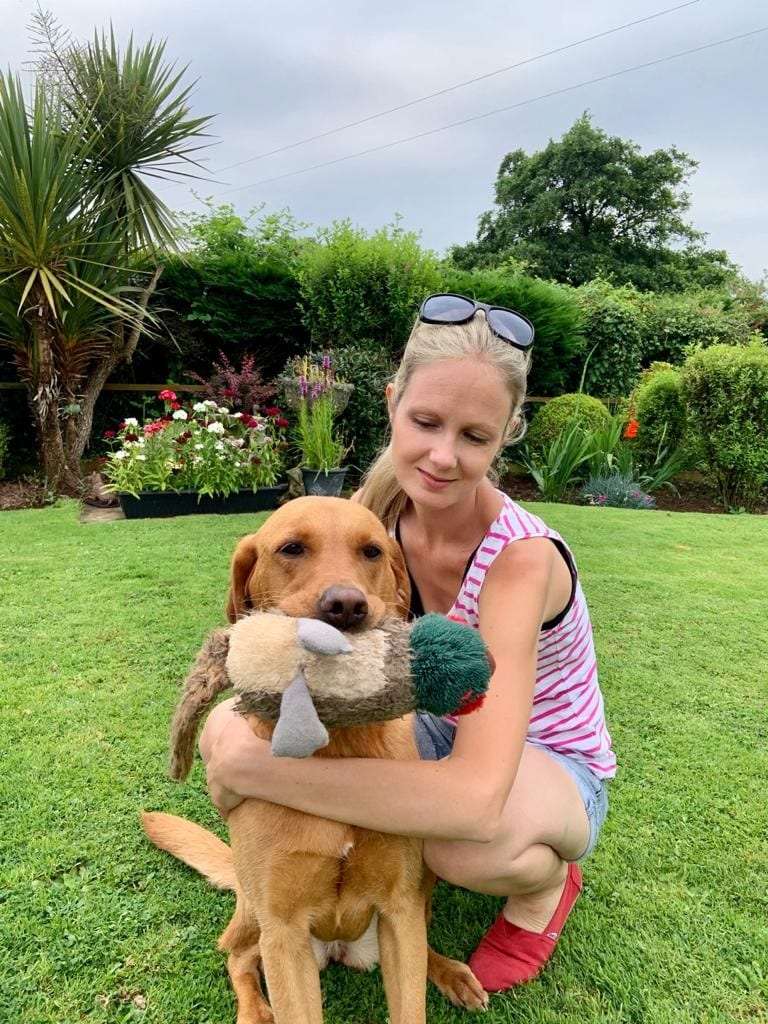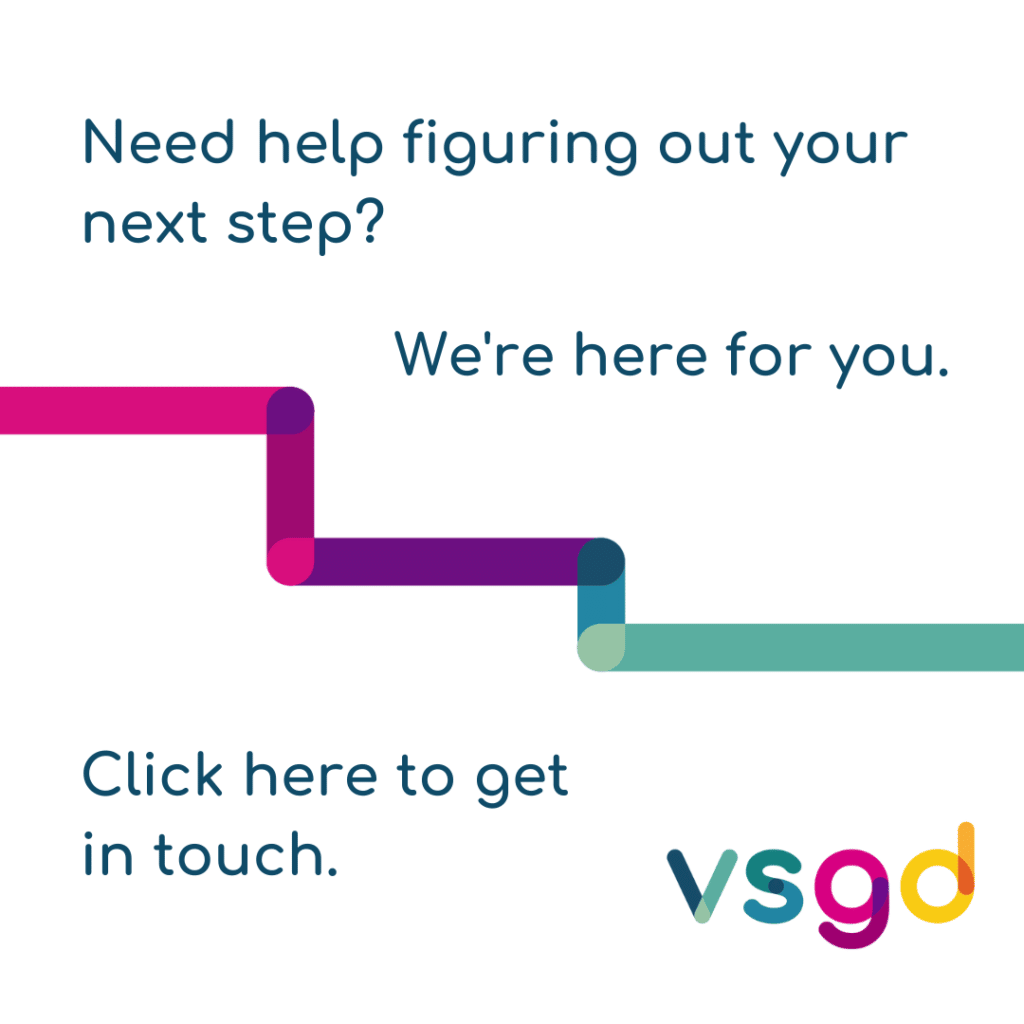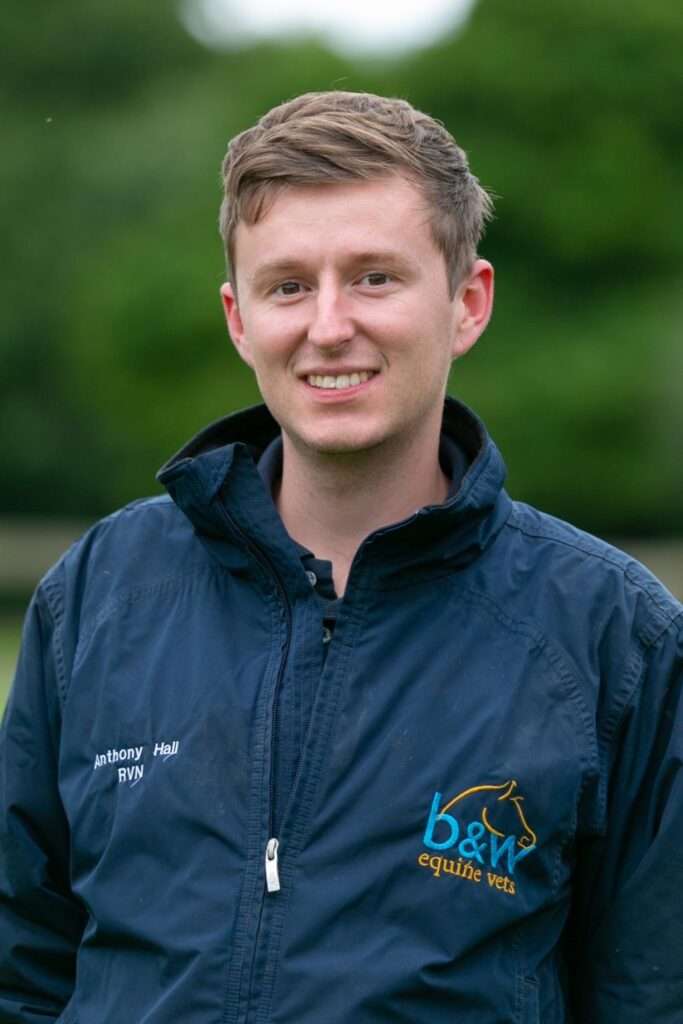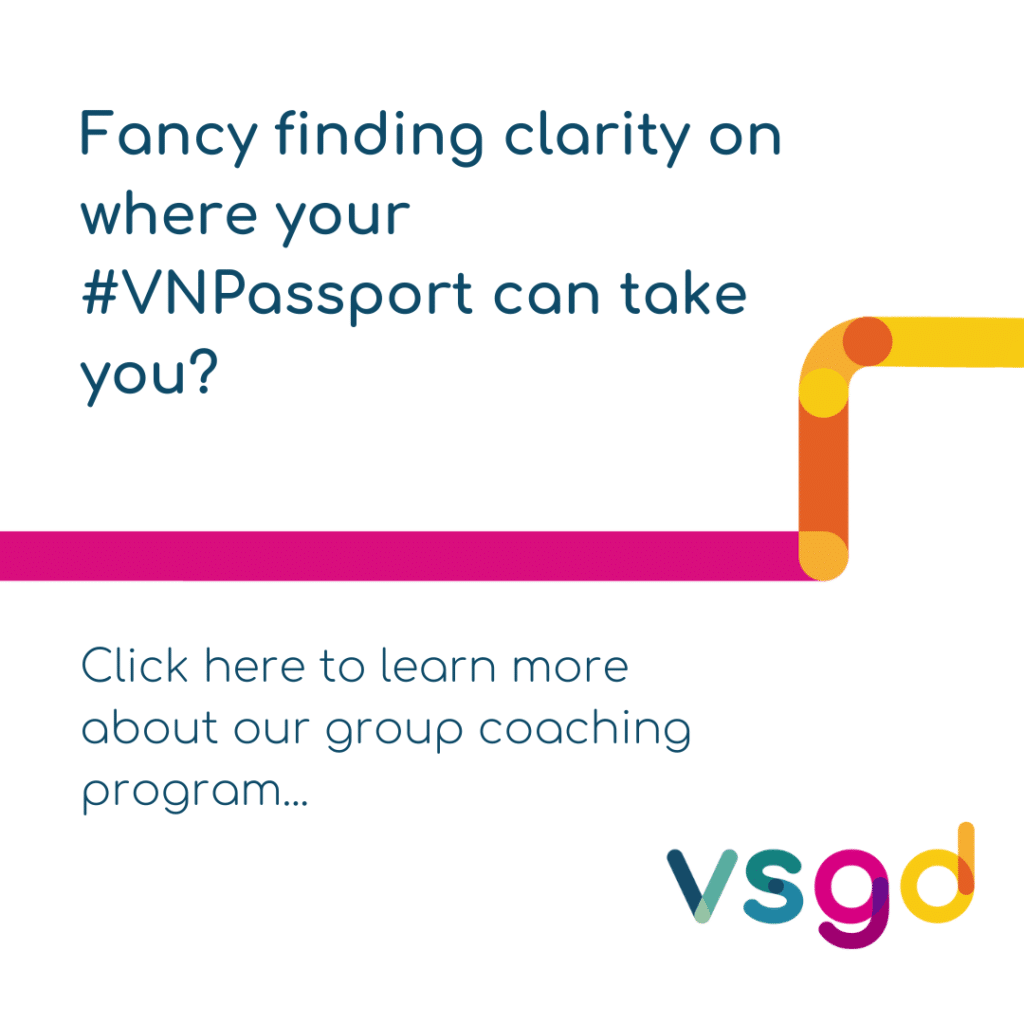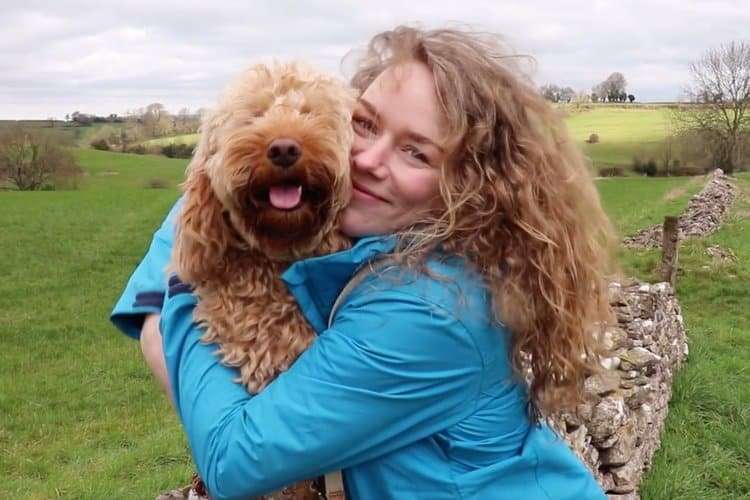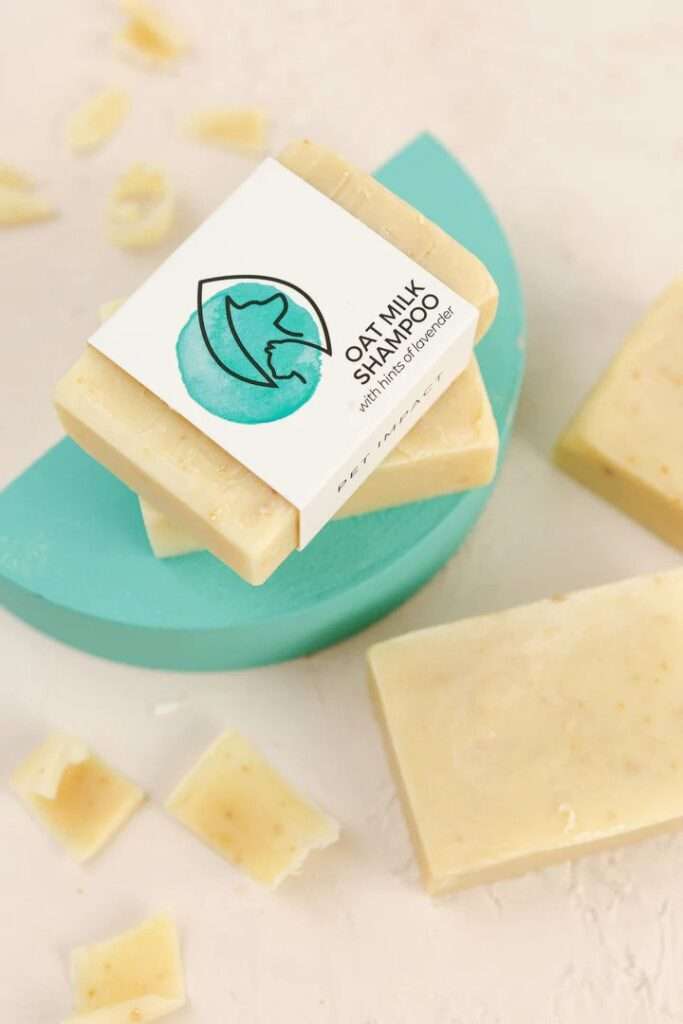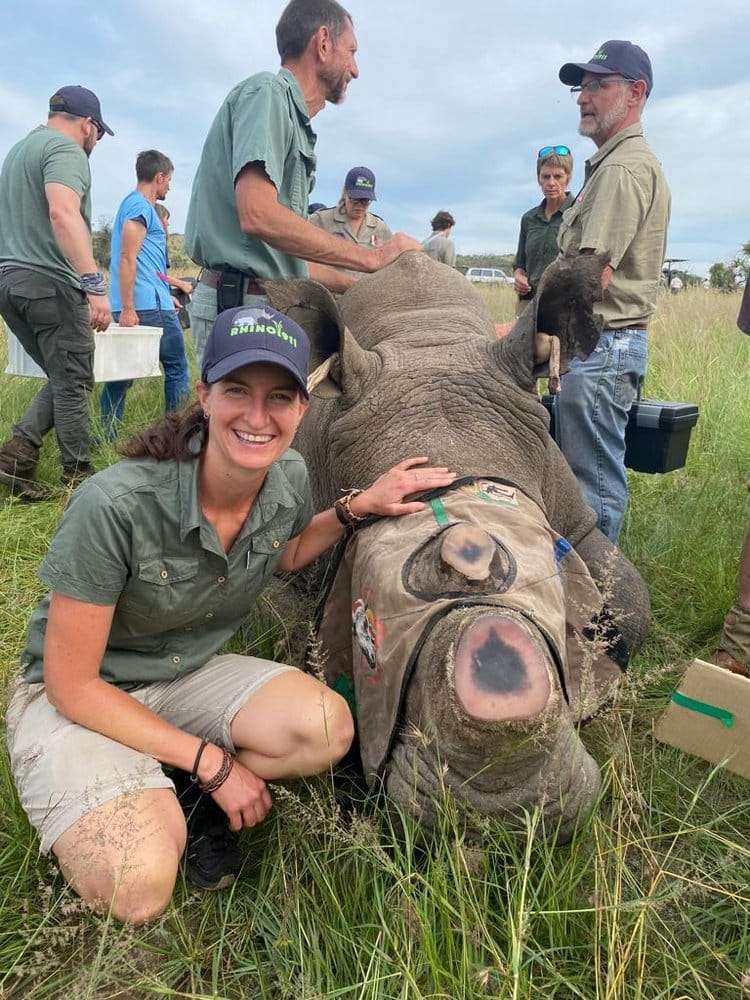Tag: vet nurse
-
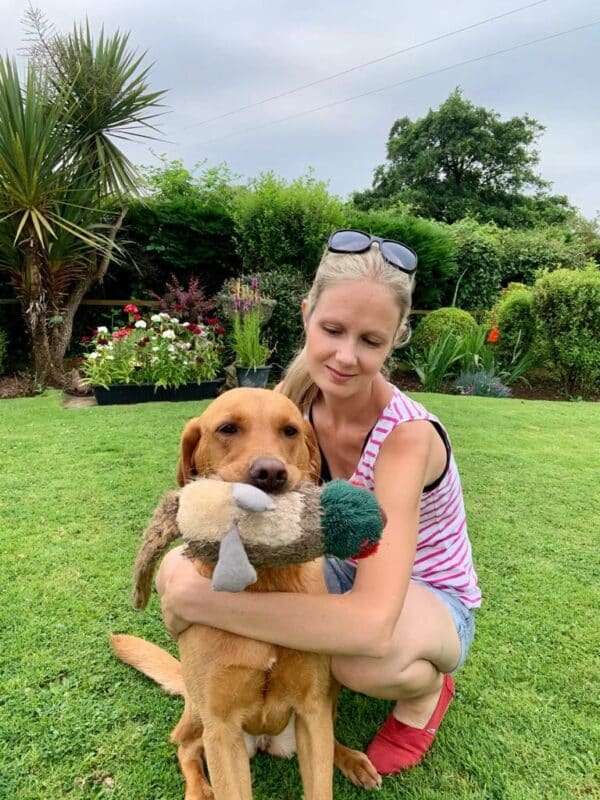
Clare Cripwell – Lecturer in Veterinary Professional...
Continue ReadingSalary
41-45k (36-42 approx. depending on entry level (salary scales and spinepoints available on Keele website))
Travel
minimal unless wishing to do more i.e. training opportunities, conferences etc
Values
Autonomy, Progression in a field you are passionate about, the value of great collaboration and team work and its ability to make real change
Region
partial work from home - time on campuses required
Essential Skills
BVSc MRCVS
Educational experienceContact
Watch Clare Here
Watch back this panel with the Harper Keele Vet School Team – discussing the brand new role of the clinical preceptor in higher education
Clare Cripwell
Check out our Career Q & A questions below to take a deep dive into this career path. If you’re interested in this type of career but unsure how to take the next step, click below to learn more about our services designed to support you.
Initially worked in small animal clinical veterinary practice 2011-2019 including locum work more latterly. Enjoyed more autonomy associated with locum placements, alongside visiting different practices and seeing different team dynamics, approaches.
2019 move into post as lecturer and course manager in Higher Education – including on BSc(Hons) veterinary nursing BSc equine science & BSc animal science programmes. Enjoyed transition, new challenges and exploring educational sector. Rewarding seeing, and helping students to learn, develop, achieve. Enjoyed input to creation and development of new BSc(Hons) Veterinary nursing programme and being able to get involved in development of new content, module creation, assessment design. Also allowed achievement of PGCert(LTHE) and Fellowship of the Higher Education Authority, alongside qualifications in workplace assessment.Step to progress into an exciting and evolving role focusing on education specifically of veterinary students. Initially clinical teaching fellow position at HKVS with progression into position as Lecturer in Veterinary Professional studies. Also recently taken on role of ‘Clinical Teaching Fellow Team Lead’ for the Keele campus
BVSc MRCVS
PGCert(LTHE) FHEA
Experience as previous Lecturer and Course Manager in Higher Education- Love the opportunity to be involved in curriculum planning and design
- Making a difference, collaborating on (sometimes big) ideas and seeing them come to fruition
- Love working as part of a forward thinking, supportive and collaborative team
- Love the opportunity to make a real difference to the education of future veterinary professionals
- Downsides – high marking workload, sometimes pinch points with multiple demands on time – often nature of Higher Education work and academic year design
Collaborative meetings relating to curriculum development, refinement and planning. Creating module content including lecture material, tutorial sessions and guided online learning sessions. Liaising with guest speakers and external organisations and stakeholders to arrange learning activities and engagement opportunities. Academic mentor meetings with students to check progress, respond to queries and/or signpost support.
Someone who loves to be involved in change, especially around the Veterinary curriculum, and likes being organised. Someone who enjoys both autonomy and working as part of a team.
Initially when transitioning into a lecturing role the fear of lecturing to large cohorts and ‘not knowing all the answers’. Overcame this by trying it, then becoming more familiar – did feel unnatural at first! Also by realising that its okay (and actually human) sometimes not to know, and a good opportunity to delegate research tasks and/or admit you are human.
Some previous teaching experience – already achieved
Valuable to have PGCert(LTHE) FHEA although support to work towards if neededExplore the field. Reach out and try it!Explore the field – try it out and have a go.
Guest lecturing is often a really great way to ‘dip your toe’ into the water and see if you enjoy it – Reach out!
Curious to know More?
Subscribe to our newsletter and never miss our free events, resources, and tips!
-

How you tell your story matters
Continue ReadingRead Time/Watch Time
5 minutes
Who should read this?
Employers, job seekers, veterinarians, RVTs/RVNs, students.
Author(s)
Melanie barham
Region
Global content
How you Tell your story matters
I’ve had the pleasure all my career of being a chameleon and interloper. Not literally, but I seem to find places where I interlope between similar places and observe, and then fitting in and transplanting ideas from other places. On horse farms as a horse vet, I’d see different ways to manage equine athletes. In surveillance, I’d see the ways different experts supported the sector they worked in, be it beef, bees, poultry or others. Now at VSGD, I see workplaces and candidates who are all unique and doing incredible work. The interesting thing to me is that in each of these places where I’ve “interloped”, it’s hard for the individuals to see what’s special about the work they do and how they do it. When they come to talk about themselves, I often hear, “I think we’re doing what everyone is doing.” This could not be further from the truth.
There’s a name for that!
The phenomenon actually has a name: the False Consensus Effect. It’s a cognitive bias where we assume that because we think and behave a particular way, that most people also think and behave the same way. “I’m doing it and it seems normal, so everyone must be doing the same thing.” This is a big part of why it is so hard to create a unique job ad for a workplace, and why it is so hard to write a great resume/CV.
Workplaces can’t see the amazing things that are different from another because they live it every day. Candidates do the same thing, minimizing their accomplishments or not seeing that they might have a unique perspective to bring. This False Consensus Effect makes for a very bland job ad or cover letter if you’re a candidate. If you’ve ever read a job ad with something like, “We’re a 2 doctor practice with a great team”, or a resume/CV with something like, “Hard working veterinarian with high attention to detail” you know exactly what I mean.
Develop your story as an antidote to boring
So what’s the antidote to boring ads and writer’s block? Telling your story in a compelling way is critical. At VSGD, we focus on connection and storytelling because it works. Storytelling together with facts increases “memorability” and understanding by over 18%. Stories and examples work because they activate multiple learning systems in our brains. 40% of us learn visually (photos, diagrams). 40% of us learn best from auditory learning (videos, audio etc). The remaining 20% of us learn best kinaesthetically (doing, experiencing, feeling). Storytelling with photos and video invokes all the types of learning! (Smith, “Leader as Storyteller”)
Sounds good… How do I make that happen?
The answer lies in effective “history taking”. We all know we get more from clients when we ask open-ended questions. When we work with a workplace and ask them open-ended questions, then funneling in on specific examples, we get rich and endearing stories. We ask for clear examples, and we see the team engaging in such a special way. That’s part of the beauty of Interview the Boss, and how we help workplaces create better job ads. Our prep calls are usually 30 minutes or less and we get so much rich information I could write a novel about the workplace that would make for killer job ad content. We do the same thing with our Resume/CV review service. We’ve become effective “workplace clinicians,” able to get to the heart of the story within a short time. You can do this with your team too.
If you’d like to tell a better story, start by asking your staff questions about your workplace. Ask yourself and clients what they love about your company or organization. You’ll likely be surprised at what you find. Use those stories to build yours and provide specific examples.
If you’re a candidate, or student, I’d highly recommend our free Career Creator Workshop Series. Or why not download our CV Menu Builder.
Vets: Stay, Go, Diversify is at heart, a community built on storytelling. Need help telling yours? Get in touch!

Curious to know More?
Subscribe to our newsletter and never miss our free events, resources, and tips!
-

Fixed Term Contracts – Curating Your Career...
Continue ReadingRead Time/Watch Time
10 minutes
Who should read this?
veterinarians, vet nurses, vet techs
Author(s)
Lacey Pitcher
Region
Global content
Fixed Term Contracts - Curating Your Career Wardrobe
Last year, I realised I hated shopping and didn’t really know what I liked or what suited me; I sat cross-legged on the living room floor, pulled my laptop over and bit the bullet. I ordered one of those “personal shopper in a box” situations. You know the ones that go and put a nice little package together, curated for you with things that someone thinks you might like. I’m in my 30’s and quite frankly…. I’ve no idea what I like or what suits me. Occasionally I go rogue…. seek a dopamine hit and end up in hot pink dungarees. Sometimes I want comfy, snuggly and reliable jumpers. The favourite that I can pull on in the morning, nuzzle into, take a deep breath and start my day. Other times I want something a little more formal and structured.
On reflection, jobs can be like that too. When we contemplate shopping and searching the job market, we aren’t always sure what truly fits. Do we go for the reliable option we are used to or explore new options and styles? Sometimes, the item thrown into a box by chance that we would have overlooked actually becomes the item that makes us feel ten feet tall. Proud. Empowered. Strong.
What IF jobs could be like this? What IF we could shop, try on for size and then decide if we keep it?
Well, we can. Over the last year, as well as trading in my scrubs for formal shift dresses, I’ve been trying on a more formal role. One to explore and consider whether it goes back into the box, is exchanged or gets to hang in the wardrobe of my CV to keep.
Here are my 10 tips of a fixed-term contract: Try the things you may not have taken a chance on.
Taking a step outside your comfort zone may feel daunting, but what if there’s something on your ”to do” list that you’d love to try but don’t want to fully jump into? Fancy a leadership role but not wanting to fully commit right now? Try it on for size. See what you like… or don’t. What you’d ideally tweak. You may well be a natural leader and thrive in the position but like me, have previously seen leadership modelled in a way you didn’t like. Why not give it a go knowing that once your fixed term is complete, you could neatly pack it back into the box declaring it a style that didn’t suit and that’s ok?
- Explore new ensembles. Sometimes, the worry of “What if I don’t fit in?” can be a reason for people not to leave roles where they are unhappy or unfulfilled. Others are at the beginning of careers who don’t want to have multiple roles on their CV early on due to the perceived sense of judgement (we will cover this in a later blog – it’s not a thing anymore) A fixed-term contract gives the opportunity to try new things together, while having a clear end point. Try new skills together, new people, new environments. I had been really worried about working from home and losing the essence of teamwork in clinical practice. A fixed-term contract allowed me to try not only working from home but with new people outside the clinical setting. A setting I had known for the last ten years.
- Not everything in a capsule wardrobe works. Sometimes, not everything in the box or role works and that’s totally ok. There’s an end point. We aren’t going to love everything in every role at all times. It’s to be expected. So, try on the bits you like but give everything a good go. Sometimes, an element of a role will surprise you and you may just find yourself thriving in unexpected ways. Others there will be aspects that you told yourself you “should” work brilliantly and in reality, they don’t. Working from home for example looked like it would give me the autonomy to structure my days. In reality, the lack of structure took some getting used to and I had to learn to be disciplined. I hadn’t considered how challenging this would be.
- Size up or size down. Wanting to downsize or give something bigger a go? Unsure if it’s for you long term? A fixed-term allows an employer chance to fill short term gaps or trial new roles but it’s an excellent opportunity for candidates to size career options up with less risk, and making a big step feel smaller. When I initially applied for my recent role I perceived it to be far greater than me, prestigious even. Terrified and excited in equal measure with clear gaps in my skillset. I didn’t see myself as a candidate who identified with very formal roles. My “small town thinking” was not necessarily the voice the role required. I couldn’t have been more wrong. I’m glad I took the leap and I’m even more proud to have grown into a role I would have previously excluded myself from. To ask the metaphorical tailor for alterations or my peers if a style may work for me. Simply because I perceived it to be too big for me. I’d have counted myself out and missed an opportunity.
- Alterations are allowed. I AM vile in the mornings. I am not my best self, have far less patience and don’t bring my creativity in a way I am proud of. Pre-coffee and fresh, air the world feels a little beige at best. I know, for an employer, this isn’t the best version of myself to bring. If taking on a fixed-term, this is a great opportunity to get used to asking for adjustments. For me starting half an hour later makes the world of difference. If the fixed-term advert states a 9am start, you can still ask if there is flexibility. As with any role. I’d spent years working nights to mitigate my grinch-like mornings. Working a fixed-term allowed me to trial day shifts before fully committing. That said, 9am didn’t initially work for me to be showing up to meetings and so things were tweaked with me. In time, I adjusted with my workplace. We recalibrated together.
- Sometimes dopamine dressing is just the lift you need. We ALL have times where we need a pick me up. Is work feeling a bit like you’ve been on the tea cups at the fair a few too many times? Do you crave some excitement and exhilaration, just for a little while? Do it! Hunt out the dopamine and return to comfortable knowing that you appreciate your role. It’s ok to go on an adventure even if you don’t want to live there. A ball gown may make you feel flipping fabulous…..you don’t need to want to wear it every day. Some fixed-terms are as short as three months. Don the hot pink dungarees and dance around your kitchen cooking up the most phenomenal career pivot.
- Don’t add it to the floordrobe. Let’s not do this. Simply just no. If it doesn’t fit or suit you send it back. While a fixed-term contract has a clear end point, that doesn’t mean you can’t call it sooner if it isn’t working out. Send the outfit back and find a better fit. A role is only your role for as long as both parties want it.
- Comfort doesn’t always win, but sometimes it does. Let’s be honest, it really isn’t comfortable squeezing into jeans that are far too tight! There, I said it. I know I’m not the only one who has essentially done the macarena with a whole array of colourful words to attempt to fit into jeans I’ve outgrown. Simply to be “successful” to get into the jeans and spend the entire day uncomfortable. We outgrow roles. We kid ourselves that we should continue on, ignoring the discomfort. because we’ve invested a lot in the outfit. Throw the damn jeans away. Try something new on for size. In a fixed term role, you needn’t worry about how you’ll be perceived if you leave. Complete the contract and leave knowing what’s right for you.
- Some things are timeless (when you need to expend less brain power on work?) Nuzzled amongst your options, a simple, understated number. The “shift dress” of capsule wardrobe. Versatile. An option that works with family life, with enough wiggle room to be able to get out and about but enough structure to know what is expected day to day. One that conforms to expectation and gives you what you need. Nothing fancy. Just right. Some options really are timeless and they shouldn’t be shunned. Perhaps, after trying predictable on for size you grow to love it. No longer looking for quick fixes perhaps it’s time to settle comfortably in to timeless. A fixed-term contract may have a fixed end date initially but that doesn’t mean it can’t become the very staple you needed all along.
- It’s ok to return to old faithfuls. And then, having explored the options, what if we realise we really did love what we had all along? While twirling in a electric blue, fancy silk gown….what if the thrill of exciting doesn’t make us happy after all? Those gorgeous aspirational heels seen in glossy magazines are quite uncomfortable and sustainable only for short periods of time. What if the models seen on daytime TV actually longed for what you had/have? What if, after playing dress-up and exploring options you find yourself reaching for what you had all along? And so, with a smile and a deep breath, you pack away your selection box of garments and career options. Wrap them up and label them, “Not for me.” What if, after reflecting on everything you never truly wanted Avant Guard, Gaga’esque options and you long to reach for that perfect cashmere jumper. What if once you return to it, nuzzle in and smile to yourself knowing it’s exactly right for you? Just enough. Just the right amount of comfy and the ability to dress it up when needed. After a fixed-term contract sometimes we appreciate what was there all along. The option we potentially looked over and didn’t truly see for what it was. A true fit for us. You know, we actually find most people in group career coaching decide exactly this: what they have might need a new scarf or a freshen up, but it is exactly where they want to be.You know, we actually find most people in group career coaching decide exactly this: what they have might need a new scarf or a freshen up, but it is exactly where they want to be.
Have you tried a role on for size in a fixed term contract? What did you learn? Let us know at hello@vsgd.co If you’re inspired to look for a fixed term contract, create a profile with us today and get fabulous jobs coming to you.
Curious to know More?
Subscribe to our newsletter and never miss our free events, resources, and tips!
-

Career Q&A: Equine Nursing – Not a...
Continue ReadingLocation
Global, Online
Dates
16th March 2023, 19:00 GMT
Speakers
Anthony Hall (B&W Equine Vets)
Join our Equine Nursing Panel to learn about rEVNs straight from the horse's mouth
As a small animal RVN I have enjoyed a varied career but it was recently brought to my attention that I knew very little about my equine counterparts and their role. I have made it my mission to learn more and understand how REVN careers vary and about how equine nurses are utilising their #vnpassport. We will be interviewing Anthony and exploring how he has carved out his equine niche and how equine nursing is growing while also dispelling a few myths.
Anthony graduated from Hartpury University 7 years ago and has been excelling in his role at a referral hospital in the Diploma lead imaging department. His exceptional skills include performing MRIs, CTs, and X Ray examinations. Anthony is a Hallmarq approved technician, having completed approximately ~200 exams per year and attending 2 Annual European meetings on Equine MRI in Chamonix, France. Notably, he collaborated with the Cannon team 5 years ago to design his hospital’s CT Scanning facility, and has since become a Cannon approved CT Operator. Anthony is also highly knowledgeable in radiology, having spent 6 years under the guidance of Jan Butler (author of Clinical Radiology of the Horse) before she retired late last year.
Curious to know More?
Subscribe to our newsletter and never miss our free events, resources, and tips!
-

Build Your Well Before You are Thirsty...
Continue ReadingRead Time/Watch Time
10 minutes
Who should read this?
Veterinarians, Vet Nurses, Vet Techs, Employers.
Author(s)
Ebony Escalona
Region
Global content
Build your well before you are thirsty - making the most of your networks
We are repeatedly told the power of networking right? To some of us it comes naturally (lucky them) and to others, it can fill us with dread (we get it). The great thing is all of us can up our networking game in a way that doesn’t have to feel icky. And what if I were to tell you that both parties can walk away (or exit a zoom room) glad that they bumped into one another?
So, why do we care about networking? Well here are three reasons that massively resonate with me:
- People buy people not products or services
- To succeed in the world we have to be known by people
- Dig the well before you’re thirsty
Let’s just get super clear here, I am not saying that you need to be famous. Far from it but you will be massively helped by your network. LinkedIn research recently shared that 85% of jobs are obtained through networking! Too many of us rely on a reactive mindset when it comes to our career (myself included) and by nurturing a network NOW we can get rid of that just in time mindset!
Networking isn’t all about you though. If you take nothing else away from this article then think to yourself how you can be of service or value to others? At the end of the day, all humans crave connection and most of us find purpose in supporting others too.
There has never been a better time to reframe how we think about networking. Covid has ironically breathed fresh air into who and how we connect with one another. So, if networking is up there with top fears of public speaking, solo surgeries, insert your fear here! Then this article is for you.
What do you read?
#Opportunitiesarenowhere
Opportunities are nowhere?
Or something else?
Great networking is a strategy not to be taken for granted. Let’s supercharge your networking toolbox.
1. Who is already available to you?
Who do you know? If you are thinking no one then let’s take a mo to touch base with your world. Who do you know at your current work? Your friends and their friends? What about previous jobs and universities? Alumni networks are gold dust! What about your clients? The other departments in your organisation if you work in a larger entity? What about the online communities you are part of? Delegates that joined you at CE events? There were over 1000 at the Global Veterinary Careers Summit! Do you volunteer anywhere? I think now your circle of connections just got larger didn’t it.
2. Think about being a broker or bridge of connections
Here is an exercise for you to try. Grab a pen and paper (or a spreadsheet) and draw three columns.
Column one = people who have been influential in your career
Column two= who did I meet them through
Column three= who did I introduce to them
We can all be enablers and brokers and exert our influence. If we think about networking from this angle then it begins to change the notion of networking from what can I get to what can I give. That middle column is going to show you the bridges and brokers in your career- these are people worth reconnecting with. If you have lots of different people in this column or if column three is full of people then you are likely a bridge or broker already. So, a big thank you on behalf of all the career explorers you have helped.
3. Reengage with old connections without putting the pressure on
Here are some email/text templates you can personalise to get you started. How about sending them to three of your previous career brokers right now!
“Hey X, I hope you’re well. I would love an update on how Y was for you. Things here have been great since Z. No rush on replying as I know you are busy with Y and doing a great job for Z.”
Or you could also try
“Hey X hope you are well. As you are well connected in Y industry I wondered if you had a connection I could speak to to pick their brains on Z. No rush at all.”
4. Networking No-Nos
Here are some GREAT pieces of advice I wish I had channelled earlier in my career
Don’t hide behind email! Care re relying on one form of communication. We all have different preferences. You can build greater rapport by moving from email/LinkedIn/text to a call or zoom and also less room for misinterpretation of the words on the page!
Refrain from making the meeting request all about you! How can you make it a win-win conversation?
Sticking with people we know. We all need fresh perspectives – register for an online event outside your sector and connect with new people.
Not asking for action or confirming the next steps – keep momentum and manage the expectations so all parties can make an informed decision about whether they are in a position to help you right now.
Fearful of rejection – when people don’t reply straight away it doesn’t mean they are ignoring you. They may have forgotten or your note got lost in spam. Be pleasantly persistent.
5. Making the most of events
A compilation that can be used for in-person and online events. What else would you add to the mix?
A simple one that often gets ignored. Know why you are attending? What does success look like? By getting clarity here you can hone in on your networking requirements.
Check out who will be there, both speakers and exhibitors. Who would you like to connect with? Who interests you? Who can you help?
Connect with people before the event before the “noise” sets in and make sure to build in context that is significant to them when you reach out.
Add updates in your social media status that you are checking into an event. It is a great way for people to connect with you!
Use your consultation skills! Many people worry about what to say when you connect. If you are genuinely interested in someone else, the conversation will flow. Trust me! A networking mantra to remember: “Be interested over interesting!” Listen to what lights that person up. Arm yourself with some powerful questions.
Use poignant questions – what brings you here? What do you do for kicks? Listen to the backstory and use the three Ps of conversation to channel positive, personal and pride-evoking moments.
If you have met them before introduce yourself and remind them of your name and where you first met. Not everyone is good with names (my hands are up) and this breaks the ice.
Body language and lighting (for online events)! The secret ingredients to building rapport and trust. Open up, maintain eye contact, show active listening and as most of us are online make sure your camera is clean and focused on your face and torso to enable hand gestures to be captured. Check your lighting is on your face and that the background isn’t too busy!
Act like the host – If you see people are quiet or not involved in a conversation, reach out as you never know where that connection may lead.
Don’t plan too much. A lot of new connections can be made through serendipitous path crossings – from exhibitor halls to online community chats!
6. Work on a memorable intro
You will be asked to introduce yourself so get comfortable with showcasing yourself. Let’s make it memorable though. What anecdote, or part of your story can you bring to the fore? Practice saying it out loud and make sure it fits. Just like when you try on new clothes, these words need to make you feel comfortable, approachable and looking sharp!
Check out this super article How to introduce yourself so you’ll be unforgettable (in a good way) by TED ideas. I have been using a variation of this when I meet with people outside of the veterinary sector:
“I’m Ebony and I am on a quest to showcase the humans behind healthcare. Vets are my current muse (I also work as one). I love shining spotlights on people’s stories alongside science to support healthy careers for the ones that care. There are too many wounded healers who burn out before they have a chance to shine.”
7. Fanning the flames & prepping for leverage
Keep the momentum by messaging people you have appreciated connecting with within 48 hours of meeting.
“It was great to meet you! You now have me thinking about X. I hope Y goes well”
Think of creative ways to stay in touch. I can hear you saying that is all good and well but how?
If you have connected on social media you will have access to their birthday and personal news. Send them an email a day before their birthday and that will show how observant and caring you are.
Text them if you notice a big life event such as new job, marriage, promotion etc
Share events or articles that you think would interest them based on the conversations you have had. It will help to broaden their horizon too and I guarantee they will appreciate it. I certainly do!
Use voice notes – I often overthink what I am going to write so voice notes allow me to bring my authentic self to the fore and is super time efficient too.
Keep a Rolodex! Log your contacts – this is for you spreadsheet lovers! I am struggling to keep all my contacts in my head so this is a way to ensure I nurture and keep up to date with my network.
So, what should you record? Have a column for the name, where you met them, contact info, useful info from your conversations, significant events coming up for them such as presenting at a conference. You can then set reminders in your calendar to send them a good luck note.
All of these tips will help to foster responsibility, accountability, discipline, courage and humility. All great traits that your future employers, collaborators and partners will thank you for.
So, what do you read now? #Opportunitiesarenowhere
Opportunities are now here! Go get em tiger!
Curious to know More?
Subscribe to our newsletter and never miss our free events, resources, and tips!
-

Cecilia Tat – Intern at the World...
Continue ReadingSalary
< £15k, It is an unpaid internship, and will need to be funded by oneself.
Travel
Train/underground to commute to the office for work, can work from home when necessary.
Values
Independent learning, Communication & Teamwork
Region
UK/Japan
Essential Skills
Background in, or working towards an animal-related qualification, ideally veterinary medicine;or in disease-related qualification
Contact
Cecilia Tat
Check out our Career Q & A questions below to take a deep dive into this career path. If you’re interested in this type of career but unsure how to take the next step, click below to learn more about our services designed to support you.
Read Cecilia’s blog article on the BVA- Joining the one health army
Explore the WOAH website
Explore the One Health EJP website
The Academy of Medical Sciences – INSPIRE Program
During my veterinary studies, I was engrossed with One Health after my fourth year module on One Health and Epidemiology, and more so due to the Covid-19 pandemic. The concept of “One Health” recently became more prominent in the public eye as a result, which affected every aspect of our lives. Following this, I was involved in a research project about ‘SARS-CoV-2 surveillance in wildlife in the UK’ in the CORVIN project with the OHEJP (One Health European joint programme) in the summer after fourth year going into my final year of vet school. For my final year rotations, I elected for the ‘One Health’ elective which opened up an opportunity to attend a One Health Summer school in Uganda prior to my graduation.Throughout my final two years of vet school, I had emailed to apply for the internship, and been in contact with the World Organisation for Animal Health’s office in Japan. And after a lot of correspondence, I started my internship after graduating as a veterinary surgeon with the World Organisation for Animal Health, Regional Representative for Asia and the Pacific.Currently, the best bit is enhancing my knowledge by ten-fold as to how international organisations work, what work they do and how they execute it. WOAH Regional Representative for Asia and the Pacific typically communicates with a lot of individuals from countries in the region in arranging technical and capacity-building support. Being a part of these activities is fulfilling as it will further benefit more people in these countries. Another great point about being an intern here is to be able to have an opportunity to develop skills in other fields other than just in a certain field (i.e. One Health). For example, I am also picking up skills in communications as well as knowledge of international relations.
There are not many downsides at the moment! I would say sitting in an office is a little bit of a downside but the desks can move up and become a standing desk so that isn’t too much of an issue!Throughout the week I am tasked by my mentor and other colleagues, if they require assistance, in assisting their projects/missions in different countries. I mainly have to help logistically if they are arranging an in-person or online activity/mission, help proofread official documents, and write articles/reports if necessary on their activities to be posted on the site. Occasionally there may be a conference to attend as a representative of WOAH, and in this case, I was able to attend one in Fukuoka which was kindly funded by the INSPIRE award.Someone who is really interested in One Health and how it is operationalised, in international work, and in political/global relations.Trying to get the visa, as well as sorting out funding to come here. I was gratefully funded by the Turing scheme as well as the INSPIRE award.1. Get engrossed with One Health related activities (at university for example!)2. Read up on One Health related issues/ literature3. Be interested in the region you’ll be working in!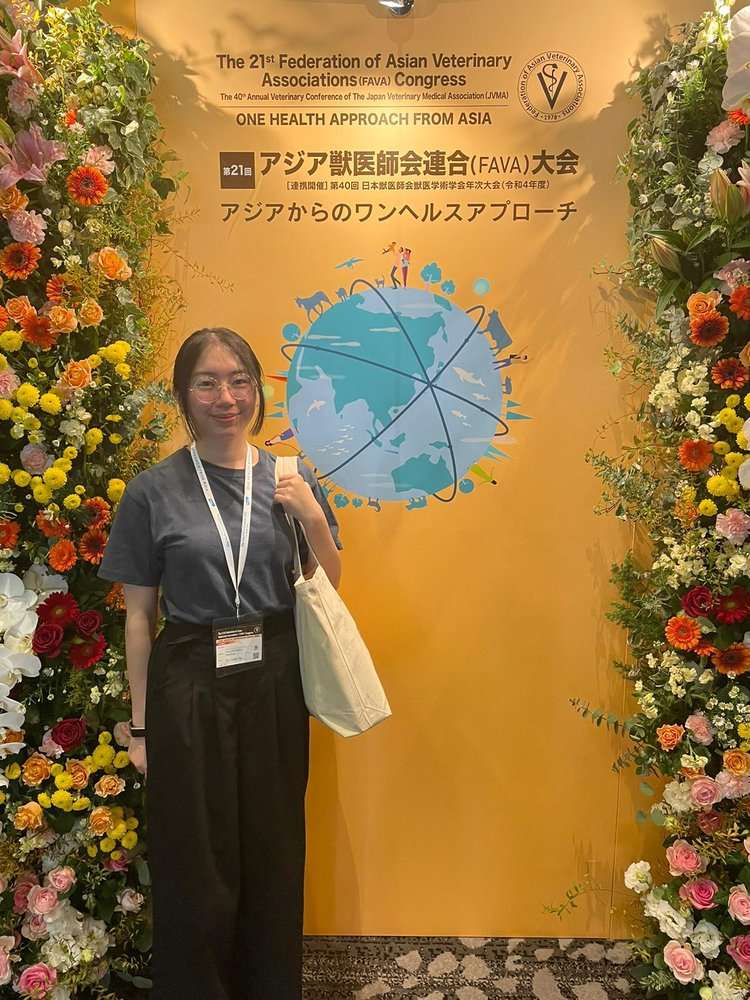
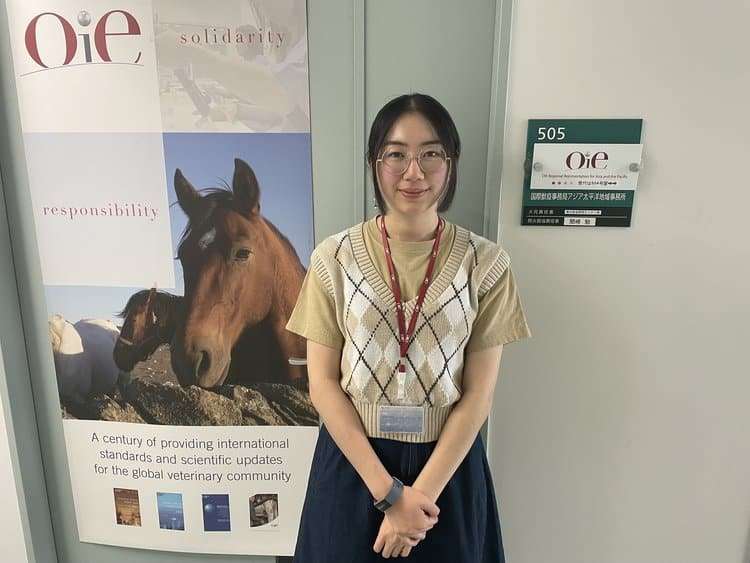
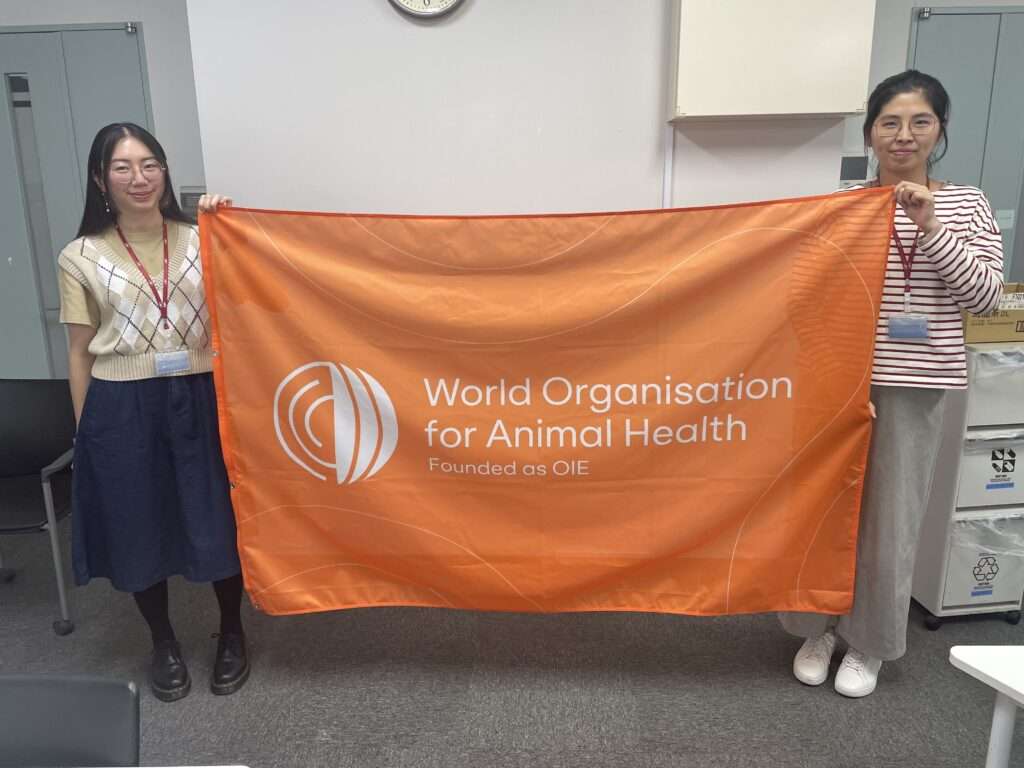
Curious to know More?
Subscribe to our newsletter and never miss our free events, resources, and tips!
-

Amber Fielden – Sales Executive for Meetings...
Continue ReadingSalary
£31-35k (starting salary for someone inexperienced)
Travel
Have to travel for every meeting once I have booked them. I am reimbursed for any travel.
Values
Independence
Region
UK
Essential Skills
Previous customer facing role, Confidence & Time management skills
Amber Fielden
Check out our Career Q & A questions below to take a deep dive into this career path. If you’re interested in this type of career but unsure how to take the next step, click below to learn more about our services designed to support you.
I worked as a nursing assistant when I was 15 after school until I went to university to do my veterinary nursing degree. I absolutely fell in love with the veterinary profession and applied to university to do veterinary nursing.After 8 years of being qualified, I decided I needed a new career, with a better salary and less stress. I applied for multiple jobs however I decided to do work experience at the hotel I work at, just to learn more about the events profession. A few months later, a job came up and I applied and got offered an interview as I was proactive in doing the work experience.I had limited sales experience and no experience in coordinating events and meetings. There are some degrees and courses you can do to have a better chance of entering the profession but I was lucky enough to be given the opportunity.I am now a sales executive for meetings and events at a hotel in Farnborough. This role is very sociable and I get to meet lots of people, as well as attend networking events and entertain new and current clients. I reach out to a lot of companies via email every day as well as event planning agencies. I arrange meetings to then introduce myself and the hotel, showcasing what we have to offer here.Someone confident, charismatic and loves meeting new people.Yes. I had no experience in this profession but using proactiveness and initiative landed me this role.1. Work experience at a few places to get a feel for the profession2. Look at the different roles within this profession as there are so many I’d never even heard of3. Be confident – you can learn on the job to a certain degreeI knew that if I left the veterinary profession, I would really have to work hard to make it work. I have a mortgage and my own animals to look after, so I couldn’t fail – which was the reason I did the work experience first.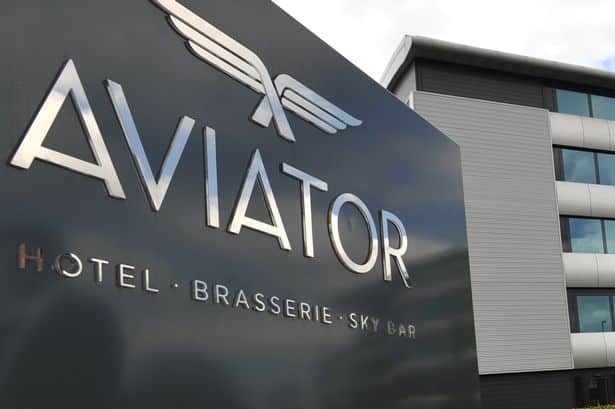
Curious to know More?
Subscribe to our newsletter and never miss our free events, resources, and tips!
-
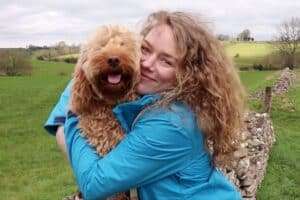
Alice Judge – Co-founder of Pet Impact
Continue ReadingSalary
< £15k - We still haven't taken any money from the business yet! But this is to be expected when starting out
Travel
Mostly working from home and occasionally at warehouse
Values
Creativity, Leadership & Resilience
Region
UK
Essential Skills
Growth mindset, Problem solving, Some business experience/knowledge is useful but you can teach yourself
Contact
Alice Judge
Check out our Career Q & A questions below to take a deep dive into this career path. If you’re interested in this type of career but unsure how to take the next step, click below to learn more about our services designed to support you.
Check out the Pet Impact website, Instagram, Facebook and Facebook group.
After graduation I started work as a first opinion vet in mixed practice. Initially I really struggled due to the lack of support and thought I wouldn’t last a year! However things improved when I changed jobs. My partner and I started Pet Impact as an Amazon business in 2019 alongside our full time vet jobs. We’ve only really started pushing the business at the end of 2021, when we reduced our vet hours to 3 days a week.It is really Gavin (my partner) who is business minded and it was him who had the drive to create his own business. I’ve always been hugely passionate about sustainability and I’ve wanted to make a bigger impact for a long time but I wasn’t sure how. I also wasn’t sure whether vet work was going to satisfy me in the long run, due to this desire.
When my family bought their first dog, Gavin and I became more aware of the environmental impact of pets, leading us to develop our first product – reusable puppy pads a.k.a. ‘inco’ pads and the rest is history!You don’t really need any qualifications or experience to become a founder of a company but some things certainly help! Of course, you need an idea, or rather, a problem that needs solving. On a practical level, you do need money! Fortunately we had some of our own as well as family donations! A bonus to starting up an Amazon business is you don’t need as much money, but a downside is slower growth. Gavin did read a lot about Amazon and business in general while starting out.
On a personal level, you have to be very passionate, driven, disciplined and resilient! Because running a business is basically overcoming one challenge/problem after the other. You need to be able and willing to overcome failures and setbacks and not let them de-motivate you.The best bit is being able to pursue something I’m passionate about and interested in, and feel I’m making a genuine difference in the world. I know the environmental impact of pets is a very small piece of an enormous problem but at least I feel like I’m doing something instead of nothing. The next best bit is being my own boss and the sense of ownership and control over my own time and work. I have freedom to take the business where I want it to go and make it my own. It also gives me a creative outlet.
One downside is the amount of work – it’s a lot of early mornings, late nights, weekends, etc. I also feel business (and being self-employed) is not as secure as vet work. Things like new competition can arise or economic recessions that can impact it. This gives me a sense of anxiety sometimes, especially because I’m so invested in it.To be honest, capital is the biggest one. We were incredibly fortunate to have help from our families and a little money from our jobs. If we didn’t we would have looked for investors.This is difficult as every day is different! But we usually start by planning our day and prioritising tasks. We still spend some time strategizing and coming up with new ideas. Roughly half the day may be dedicated to the day to day running of the business e.g. answering emails, packing orders, social media. The other half may be dedicated to growing/improving aspects of the business, e.g. optimising website, creating ads, product/market research, creating content, reaching out to retailers and so on. All of this is from home and occasionally we go to the warehouse to receive/send out shipments.A driven, resilient and creative individual who has self-confidence and self-belief. Needs to be a good communicator and leader.1. Define the idea or problem you want to solve and who you want to serve.2. Speak to people and do your research around the topic/problem.3. Define your goals and make a plan to achieve them.Don’t let your lack of knowledge stop you – you can learn by doing! Don’t be afraid of failing repeatedly and don’t compare yourself to others or let success stories distort your expectations (i.e. it doesn’t happen overnight!).
Make sure you want it enough, be clear on your goals and why you’re doing it. If you can find a business partner who matches your passion and commitment – that will help you enormously or join communities of entrepreneurs online.Conservation Veterinarian
Conservation Veterinarian
Conservation Veterinarian
Curious to know More?
Subscribe to our newsletter and never miss our free events, resources, and tips!
-
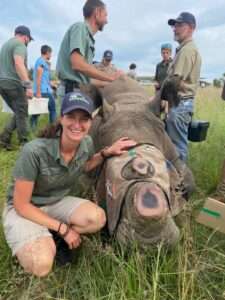
Jennifer Lawrence – Conservation Vet
Continue ReadingSalary
This varies depending on where you are working. Working for an NGO, zoo, government or private company will dictate salary - Working in conservation is not lucrative in terms of salary expectations
Travel
It depends on the projects and interventions required. Can range from a few days to a couple of weeks.
Values
Adaptability, Resilience & Creativity
Region
South Africa
Essential Skills
Veterinary skills & Experience of the behaviour of the animals you're working with most of the time
Contact
Watch Jennifer Here
Watch back the inspiring career Q&A with Jenny!
Jennifer Lawrence
Check out our Career Q & A questions below to take a deep dive into this career path. If you’re interested in this type of career but unsure how to take the next step, click below to learn more about our services designed to support you.
See what Jennifer has been up to on Instagram.
I started out as a small animal veterinarian and found that this was not the career for me. Small animal practice has however been an easy career to fall back on when I needed extra financial support. I have not completely moved away from this and do a bit of locuming when not doing conservation work.Some of my earliest memories as a little girl are of the bush and the big outdoors. This grew into a passion which took some time to grow and I only recently started nurturing it fully. I had moved through several different careers in veterinary including smallies, equines and industry. None of these really felt as though they fit. As I have journeyed through life and become more in tune with what I want the highest future possibility to be, I understood that my purpose and my career needed to align. And this is when I realised that conservation is where I want to go.Transitioning in to conservation, especially as an older vet is not easy. Knowing this and accepting the challenge is the biggest way forward. Continuously knocking on doors of possible opportunity and growing my network was key to get me where I am today. Enrolling in a masters in conservation medicine has also helped me along the way.One of the best parts of doing conservation work is knowing that I am a part of something that is so much bigger than me. The knowledge that I am serving a greater purpose is what keeps me passionately committed. Working in a complex environment with many different disciplines is also something that I find exciting. No one day is the same and being open to adaptability and initiative is essential. One of the down sides is that work is not consistent and there can be many times when income is restricted. This is when I fall back on small animal locum work.No day is the same doing conservation work. Many of the interventions and management captures require prior planning. Even with this, you need to be adaptable and ready to change plans at the last minute. Emergency capture and treatment also vary depending on the species you’re working with. At times you may have to be on standby until the animal you are wanting to work with is located. Sometimes there are many hours of travel and waiting between captures. A different level of patience is required for this kind of work. And while many days are spent in the field, in beautiful places, there are days spent in the office doing administrative work as well.I think one of the keys to unlocking a career in conservation is having a deep passion and commitment to a higher purpose. A sense of adventure is paramount and acceptance that there may be many days spent away from home. To be able to really understand the ways of conservation, you need to be open to the complexity and challenges that come with it. A level of resilience is required especially given the detrimental state of our natural world. Active hope is required to meet this and a knowledge that you are doing your best.1. Start creating a network of people and organisations that interest you and get your CV to them2. Volunteer your time in areas of conservation that interest you3. Connect with other vets who are in conservation and be willing to learn from themIf you have the passion and commitment to take up the challenge you will find your way into this journey. Be willing to continuously knock on doors and network as much as possible. Be open to volunteering in aspects of conservation that interest you. Find a good mentor or two to guide you. There will be times when you may find you hit walls trying to find your way into conservation, but see those times as lessons and find out what the walls are telling you. There is so much to learn while on the journey. Most of all enjoy the experiences you have while finding your way. Some of them will be more special and meaningful.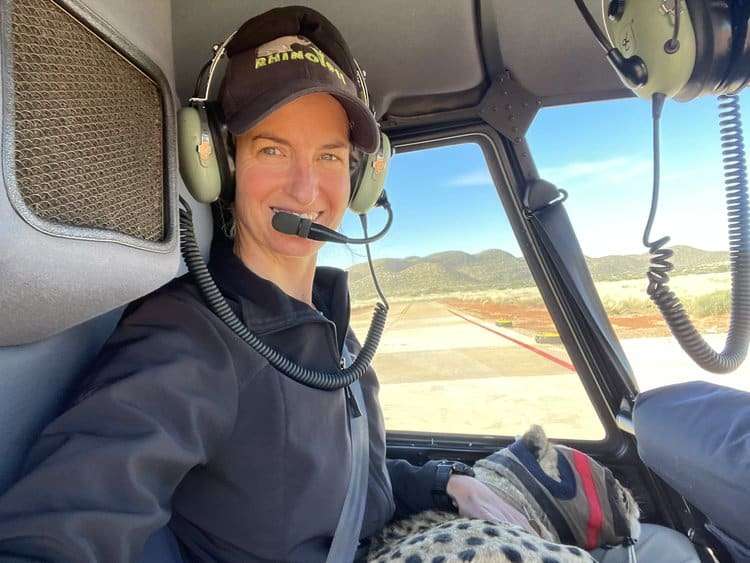
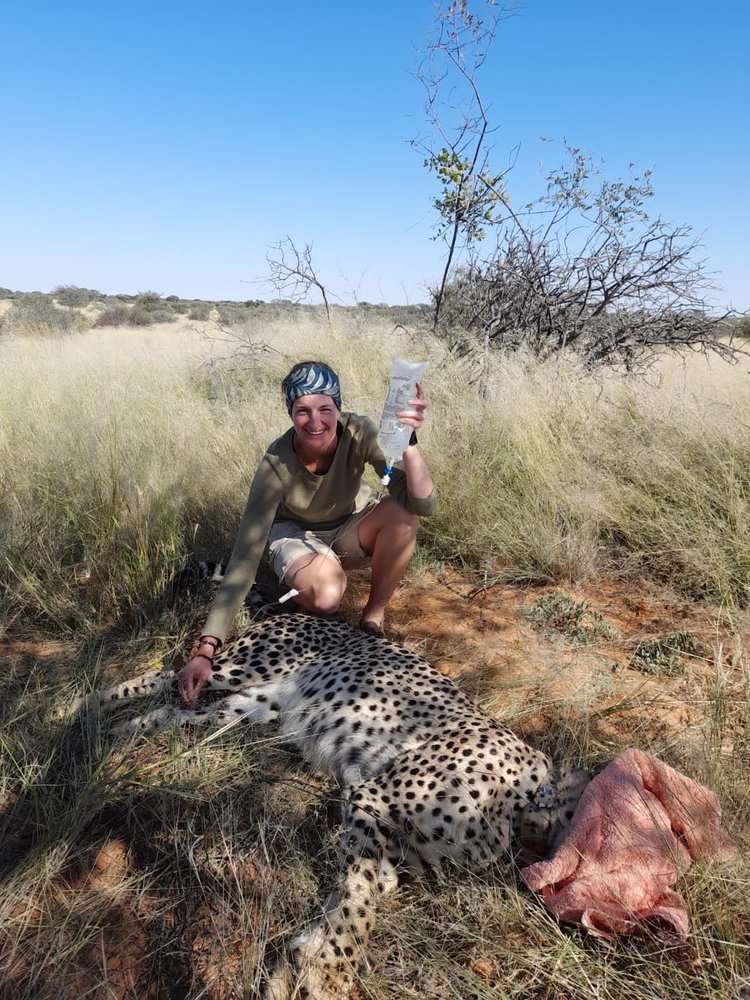
Curious to know More?
Subscribe to our newsletter and never miss our free events, resources, and tips!
-

Revelling in Spectacular Mediocrity
Continue ReadingRead Time/Watch Time
5 minutes
Who should read this?
students, veterinarians, vet nurses, vet techs, employers.
Author(s)
Melanie Barham
Region
Global content
Revelling in Spectacular mediocrity
I like being awesome at things. I choose things I’m awesome at to do frequently. I don’t enjoy being terrible at things; it’s uncomfortable and it sucks. And when I try new things, I’m NOT awesome at the new skill, and that makes me uncomfortable.
There I said it.
Any other perfectionists in the room? Maybe you’re the same?
My coach and I talked about this narrative, and how to combat it when we developed my learning plan. She recommended that I seek out situations where I’m uncomfortable as a matter of importance. Ugh! No!!
Like anyone else, I have to challenge myself to enter growth and change mode, where I won’t be the expert and I may not be good at navigating it. But the act of learning something new and sitting with the discomfort of not being the expert and risk of failure is what makes us good at doing more new things. It’s the same feeling right? Surviving and thriving in frequent low stakes new situations allows us to adapt to change more easily. We’re able to scaffold, or build upon the experience we had where we tried something new and nothing disastrous happened. We can actively build upon our experiences with more and more confidence in ourselves.
Essentially, “Ah right, I could handle discomfort of change and practicing a new skill, so in this similarly uncomfortable situation, I will draw upon the skills I learned to get through the other scenarios.”
Sounds amazing, but how do you do that? I’d like to suggest something I’ve been trialing out: taking time to revel and sit in spectacular mediocrity in a safe space.
I have a group of neighbours where we often meet up to be perfectly mediocre at things. We go for cross-country ski sessions that are slow. We make imperfect macrame. We make hilarious mugs. It’s fun, and I love spending time with them. Two weeks ago, we did a class on watercolour marker mandala. The lady who taught us is a high school teacher. She teaches at a school where students live in as they attend high school and recover from addictions. Her focus with us, like it must be with her students, was on playing with the colors. On finding cool combinations. And learning, exploring, and trying.
The mandalas were imperfect with flaws everywhere. Despite this, I felt energized and my work and resilience was high for the next week.
Upon reflection, any time I have taken time to be spectacularly mediocre (or very bad in some cases), I’ve built my resilience to be able to try bigger things, and felt SO much more ready and less stagnant and afraid. Believe me, I’ve been mediocre at many many things including ukulele, podcast editing, dog obedience (see community posts about bad dog), beekeeping, woodworking, skiing, snowboarding, and now watercolour markers.)
I’m going to continue to fulfill my prescription and try new skills simply so I can be mediocre at them and break down my aversion to it. It seems to be a pretty important prescription for my personal growth. Wanna join me?
What ways do you practice discomfort? What have recently learned and been “spectacularly mediocre” at?
If you are feeling challenged with the discomfort of taking the next step in your career, high five, you’ve joined the club. You may find support within our communities (free to join), or like I do, with a coach.
Happy exploring,
Melanie
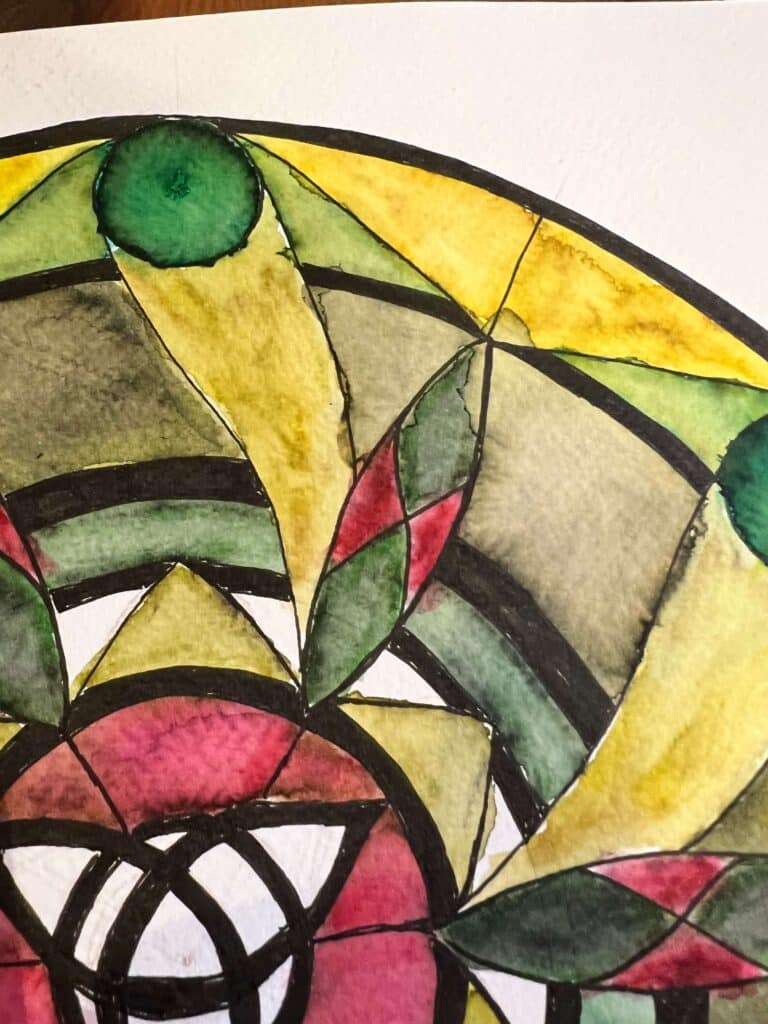
Curious to know More?
Subscribe to our newsletter and never miss our free events, resources, and tips!

